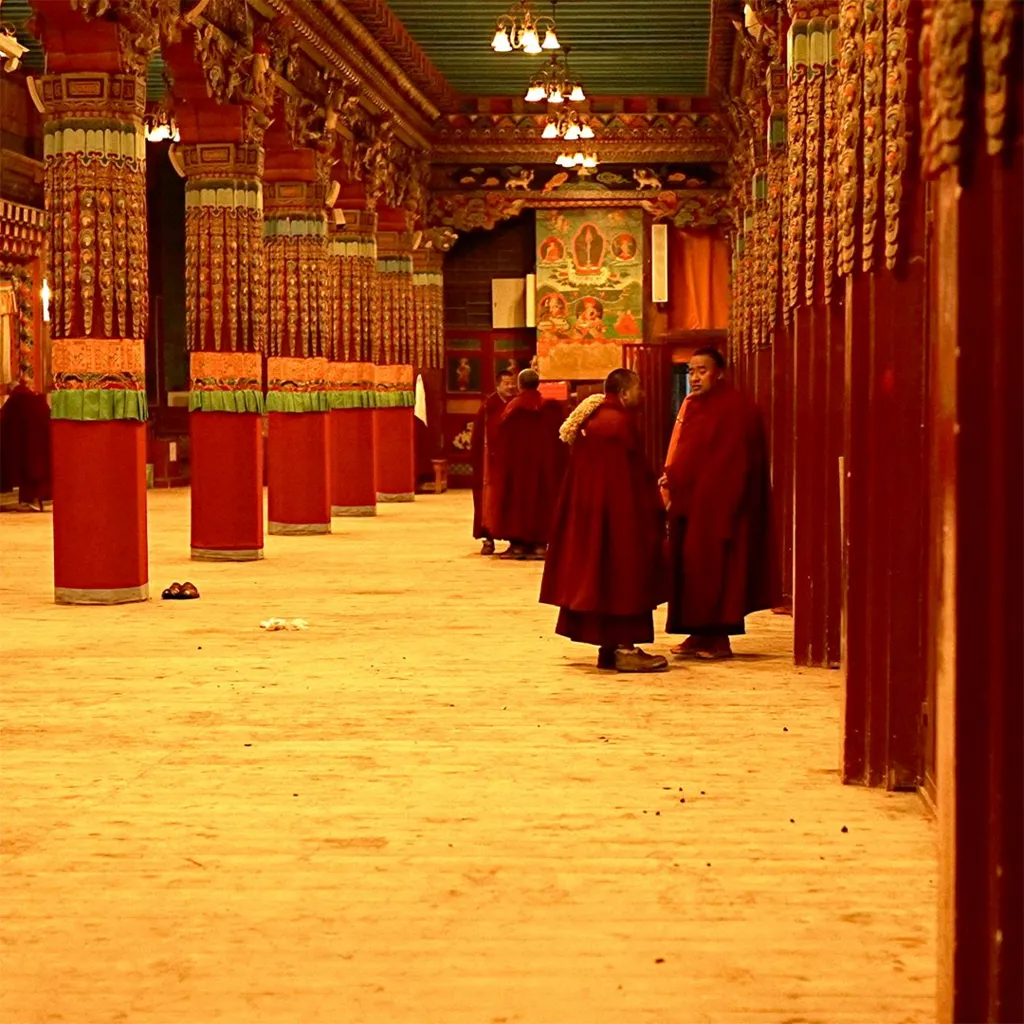Under tight surveillance and mounting pressure, Tibetans in China’s Sichuan province are quietly marking a moment of deep spiritual significance: the 90th birthday of the Dalai Lama. But in the birthplace of Tibetan resistance, voices of dissent are increasingly drowned out by the hum of surveillance cameras and the weight of authoritarian control.
At the Kirti Monastery in Aba, a flashpoint of protest for decades, monks still gather before dawn in saffron robes, chanting beneath murals depicting the life of the Buddha. Yet alongside the incense and prayer wheels now stands a police station. Steel poles fitted with surveillance cameras monitor every corner. And still, quietly and cautiously, some monks speak out.
“Things are not good for us,” one monk told the BBC in hushed tones, fully aware he was being watched. “Be careful. People are watching you.”
Kirti Monastery gained global attention during the 2008 Tibetan uprising and the wave of self-immolations that followed — more than 150 people lit themselves on fire in protest of Beijing’s rule. Most of them were from this area. The main street in town came to be known grimly as “Martyr’s Row.”
Now, nearly two decades later, Tibetan monks and local residents are facing fresh pressures under tightened Communist Party control. Their traditions and language are being squeezed under policies aimed at assimilation, including mandatory Mandarin-language education and restrictions on religious training for youth.
“Even teaching children Buddhist scriptures before 18 is no longer allowed,” one elderly monk told us, his voice cracking with emotion. “They’ve torn down one of our nearby preaching schools. It was a place of learning and faith.”
China maintains that Tibetans are free to practice their religion and touts its investments in the region — new roads, railways, and tourism infrastructure. But many Tibetans see these developments as camouflage for deeper encroachments on their identity. Even small gestures of devotion to the Dalai Lama are criminalized. His image is banned. His name cannot be uttered in public.
Now, with the Dalai Lama announcing that his successor will be chosen after his death — and that no government has authority over the process — Beijing’s longstanding strategy is being put to the test. China insists the next Dalai Lama must be born within its borders and selected in line with “historical customs” as approved by the Communist Party.
It’s a collision course decades in the making. When the Panchen Lama — second only to the Dalai Lama in Tibetan Buddhism — died in 1989, the Dalai Lama identified a child as his successor. That child disappeared, and the Chinese state appointed a rival candidate whom exiled Tibetans do not accept.
The fear now is that China will repeat this process with the Dalai Lama himself, installing a state-sanctioned spiritual figurehead that Tibetans do not recognize.
“They want to turn the lion of Tibetan culture into a poodle,” said Tibet expert Robert Barnett. “Something loyal, obedient, singing and dancing — the Disney version of Tibet.”
As China sends propaganda teams to schools and villages to promote “new regulations” around choosing the Dalai Lama, many in Tibet remain unaware of the global developments surrounding the succession.
“Most Tibetans inside China won’t even know there’s another Dalai Lama unless someone tells them,” Barnett said.
On the surface, life in Aba continues. Tourists pose for photos, spin prayer wheels, and marvel at yak herders riding across sunlit plains. Party slogans proclaim unity like “ethnic groups are united as closely as seeds in a pomegranate.”
But beneath that carefully curated image lies a community wrestling with grief, fear, and a quiet determination to preserve a culture that has endured for centuries.
As we left the monastery, a group of older Tibetan women passed us singing gently, baskets slung over their shoulders, pausing to spin the prayer wheels one by one.
For 75 years, Tibetans have clung to their heritage despite pressure, censorship, and loss. Now, as the Dalai Lama enters his twilight years, a deeper question looms: will they be allowed to carry that legacy forward?

